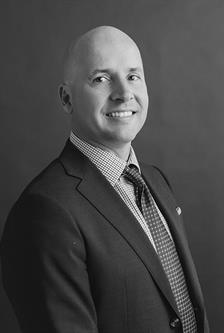
October is Disability Employment Month
The Governor’s Cabinet recently declared October as disability employment month in Florida. As explained by a state spokesperson, “What [the State] wanted to do is encourage employers to look at people’s abilities and not their disabilities because sometimes that is what people focus on and that’s the wrong thing. Having a disability is just one small part.”
Ability To Work Often Tied To Feelings Of Self-Worth
Psychologists have long known that adults’ feelings of self-worth are often very connected to their ability to work. This conclusion was supported in a recent survey of more than 100,000 Americans conducted by the Gallup-Healthways Well-Being Index, which revealed that 16.6 percent of unemployed Americans are depressed, compared to 5.6 percent of those who work full time.
As reported by a news source that interviewed psychotherapist Charles Allen, “self-esteem and self-worth are closely aligned.” This is because “when you have a job, you have a continuous source of feedback that you are a contributing member of society.” This sentiment is echoed in an interview with psychotherapist Jonathan Alpert, who says, “Employment provides a sense of purpose…of belongingness. Those who are unemployed lack that purpose.”
Employment After A Serious Accident Or Injury
Those who suffer from a serious or catastrophic personal injury need to take the time necessary to completely heal. They may have ongoing medical treatments and therapies that consume much of their time and leave them mentally and physically exhausted. They also may need to relearn how to perform certain task or find new ways to adapt to the basic activities of daily living. Simply working on healing can be as much as some individuals can take on after experiencing a debilitating injury.
Some individuals, though, may eventually be ready to return to their former employment or to work in some capacity. While these individuals may want to work, they may need support, training, and vocational rehabilitation services to help them get employed and maintain that employment.
However, Tallahassee residents who suffer serious personal injuries in an auto accident or through the negligence of others often encounter significant barriers to returning to employment due to their disabilities. These return-to-work obstacles can include financial and health care issues, workplace accessibility, and sometimes even employer attitudes.
For individuals who are interested in and actually able to return to work, vocational rehabilitation programs are available to provide support services. Vocational rehabilitation services may help by:
– Assisting an individual who has become disabled after an accident identify new career interests and skills that are compatible with the individual’s post-injury abilities
– Providing educational opportunities or job training
– Assisting with job development or job placement, including possibly arranging for a position or providing assistance with job application
– Making arrangements with an employer for employment or workplace modifications or accommodations
People who have been injured in an automobile or other accident, and who are interested in additional information about Florida’s Division of Vocational Rehabilitation (DVR) are invited to read more about the program on the DVR’s FAQ page. A telephone number and email address for questions about Florida’s rehabilitation programs can be found here.
Legal Help For Tallahassee Area Accident Victims
For Tallahassee and southern Georgia individuals who have suffered a serious injury in an accident, it is important that you talk to an experienced personal injury attorney who can work on your behalf to help you recover for your medical costs, lost wages or loss of employment, as well as for your pain and suffering, and other losses. If you have legal questions about an accident and your ability to return to work, the lawyers at Fasig & Brooks can be reached at (850) 222-3232 or contact us through our online contact form.





